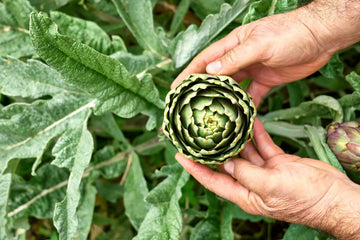Bitter substances are natural compounds that occur in many plants and are characterized by their characteristic bitter taste. These secondary plant substances are not only responsible for the taste, but also have numerous health benefits. In modern diets, bitter substances are often neglected because many foods are processed in such a way that the bitter taste is minimized. In this article, you will learn why bitter substances are important, which foods contain them and how you can integrate them into your diet.
What are bitter substances?
Bitter substances are natural compounds that occur in many plants to protect them from predators. They are part of the so-called secondary plant substances and occur in different amounts in different foods. They are particularly present in the green parts of plants such as leaves and stems. When consumed, these substances trigger the bitter taste that many people avoid, even though it can have health-promoting effects.
Foods rich in bitter substances
1. Chicory : One of the best natural sources of bitters, chicory is a versatile vegetable that works well in salads.
2. Artichokes : They contain not only bitter substances, but also valuable antioxidants. Artichokes are particularly helpful for liver health.
3. Endive : Another bitter vegetable that can be eaten raw or cooked, it is a staple in many Mediterranean dishes.
4. Arugula : This popular salad herb has an intense bitter taste and is rich in bitter substances. It is an easy way to incorporate bitter substances into your daily routine.
5. Grapefruit : This tart citrus fruit contains vitamin C as well as many bitter substances that stimulate digestion.
6. Bitter melon : Popular in Asian cuisine, bitter melon is an extremely bitter vegetable valued for its health benefits.
Bitter substances can play an important role in weight loss by helping to control hunger. One of the main mechanisms here is appetite suppression . The bitter taste activates special receptors in the gastrointestinal tract that signal to the brain that the stomach is full. This triggers an early feeling of satiety, making it easier to eat less.
2. Appetite control:
The bitter taste stimulates the production of digestive juices, promoting better nutrient absorption. At the same time, it signals to the body that enough food has been consumed, which can prevent cravings . By activating receptors in the stomach and intestines, the feeling of hunger is reduced, which can help people feel more satisfied and require fewer unhealthy snacks between meals.
Because bitter substances help regulate food cravings and keep blood sugar levels stable, they are a valuable component of any diet aimed at long-term and sustainable weight loss .
Tips for integrating bitter substances into your diet
Many people are not used to the bitter taste, but there are simple ways to gradually integrate bitter substances into your diet:
• Combine bitter with sweet : You can combine bitter vegetables like arugula or chicory with sweet fruits like apples or pears to balance the taste.
• Drink bitter tea : Herbal teas such as dandelion tea or gentian tea are rich in bitter substances and help support digestion.
• Use bitter drops : There are special bitter substance preparations in drop form that you can take before meals to stimulate digestion.
• Enjoy raw food : Try to add more raw vegetables such as endive, radicchio or rocket to your salads. This way you absorb the bitter substances unprocessed.
Hildegard von Bingen and the importance of bitter substances
The Benedictine Hildegard von Bingen (1098–1179) was one of the first to describe the healing power of bitter substances. She saw bitter plants and herbs as important helpers for strengthening the body and promoting health. In her natural medicine, the balance of body fluids and the cleansing of the body played a central role, which was supported by the regular consumption of bitter substances. Herbs such as wormwood , gentian and pimpinella were important components of her teachings.
Conclusion
Bitters play a crucial role in digestion and general health. Despite their bitter taste, they offer numerous benefits, from aiding digestion to supporting liver function. By incorporating foods rich in bitters such as chicory, arugula or grapefruit, you can help your body function optimally and reduce cravings. It is worth incorporating this often underestimated taste back into your daily diet.





